The Straight Shot: Federal vaccine updates - May 14, 2025

weyo - stock.adobe.com.
The first few months of 2025 have seen many changes in federal vaccine policy and programs. This list—drawn from news reports and other information—ranks the most significant changes to vaccination policy, with brief commentary from the editors.
The Straight Shot in your inbox
Stay up-to-date on threats to vaccine safety, changes in federal policy, and vaccine availability and accessibility with The Straight Shot. Click below to get these updates directly in your inbox.
Sign up for email updates1. Federal government mismanages measles response in the Southwest
As of May 8, 2025, there have been 1,001 confirmed cases of the disease, including 126 hospitalizations and three deaths; this is the largest outbreak in the US in 25 years. Notable missteps include:
- HHS Secretary Robert F. Kennedy, Jr., has repeatedly endorsed unproven treatments for measles. While acknowledging that the measles vaccine works to prevent measles, he has also falsely described the vaccine’s adverse effects.
- HHS prevented CDC experts from briefing the public and blocked the release of a forecast about the epidemic.
- HHS cut grant funds used for state measles outbreak responses.
- CDC canceled plans to provide assistance to schools in Texas to improve ventilation to protect against measles after relevant CDC experts were let go from their jobs.
Editor's note: In a major milestone, the United States eliminated ongoing measles transmission in 2000. This designation will be revoked if the current outbreak continues for a total of 12 months – SD
2. Trump administration pushes out top vaccine regulator
Dr. Peter Marks, director of the Centers for Biologics Evaluation and Research at the FDA, resigned under pressure on March 28. Dr. Marks alleged that HHS had asked him to find data that does not exist on brain swelling and deaths caused by the measles vaccine. In his resignation letter, Marks wrote: “Undermining confidence in well-established vaccines that have met the high standards for quality, safety, and effectiveness that have been in place for decades at FDA is irresponsible, detrimental to public health, and a clear danger to our nation’s health, safety, and security."
Editor's note: Dr. Marks fiercely protected the independence of FDA decision-making. His absence may provide a greater opportunity for political agendas to interfere with science-based vaccine policy at the agency. Time will tell; many key decisions are coming. – PL
3. HHS cuts vaccination funds in states, cuts its own vaccine staff
The Administration abruptly made $11 billion in cuts to state public health funds originally provided as part of the Covid response. Some of these funds were used to fund vaccination clinics; others were used for outbreak monitoring and response. These cuts are on hold in certain states as a result of litigation. In addition, as part of the recent staff cuts, the CDC’s National Center for Immunization and Respiratory Diseases lost its partnership and health equity branch. This office coordinated the activities of CDC grantees, many of whom work directly in communities to support immunization.
Editor's note: When it comes to outbreaks, all public health is local. Weaker state and local health departments–and less support from the CDC–means less protection for the people they serve and more potential for the outbreak to spread to other communities. – JR
4. FDA may be changing standards for Covid vaccine approval
Breaking with precedent, FDA’s new Principal Deputy Commissioner paused review of the application for the Novavax Covid vaccine right at the deadline for a decision. A new special assistant to the Commissioner apparently then reviewed the application and asked for additional studies to be conducted. Tweets by the FDA Commissioner and statements by HHS have suggested that the agency may require new placebo-controlled studies for Covid boosters. However, the study designs and timelines are unclear, raising questions about whether the changes will interfere with the availability of boosters this fall.
Editor's note: I wish I had a dollar for every time someone asked me what this policy change actually means. To explain itself, the FDA should release a draft guidance that explains the new requirements the agency is proposing and give the public an opportunity to comment. Former career officials are already saying that the new Novavax requirements represent unacceptable political interference in the regulatory process. If there is disagreement within the agency over the policy, the FDA should follow best practices and disclose these views. – JS
5. HHS hires anti-vaccine activist to review vaccine safety data
HHS recently hired David Geier, a leading source of misinformation about vaccines, to study whether vaccines are linked to autism. Geier has previously been sanctioned by the Maryland Board of Physicians for practicing medicine without a license and has had research retracted. A special master in the vaccine court found that his studies should not be given weight.
Editor's note: In the early 2000s, Geier's research on vaccines and autism was carefully reviewed by a committee convened by the nonpartisan Institute of Medicine, which found it to be "uninterpretable." He has lost all credibility on the subject of vaccine safety. – JS
6. NIH terminates research on vaccine hesitancy
With vaccine refusals rising, research on how best to communicate with individuals and families about the benefits and risks of vaccines is particularly timely. However, NIH has canceled more than 40 grants intended to understand and respond to vaccine hesitancy.
Editor's note: Studying vaccine hesitancy is not a partisan activity; it's vital to understand how to address parents' questions about vaccination so that they can make informed decisions about how to protect their families. – SD
7. HHS moves $500 million to study older vaccine technology favored by two appointees
HHS reportedly pulled $500 million from contracts for next-generation vaccines and is using the funds to study a type of "whole-virus" vaccine technology developed and championed by Dr. Matthew Memoli, the administration's initial acting NIH director and current principal deputy director, and Dr. Jeffrey Taubenberger, the acting director of the infectious disease institute. "Whole-virus" vaccines are 70 years old and thought by many scientists to be less effective and cause more adverse effects than newer technologies. This unprecedented shift in funding to products favored by political appointees appears to have been made without any scientific or peer review.
Editor's note: In the statement announcing this new funding, HHS noted that the "whole-virus" technology was "adaptable" for RSV, a serious pathogen that causes severe disease in many young children and older adults. The statement failed to note that in the 1960s, a whole-virus RSV vaccine was an iconic failure of vaccine development. The vaccine did not stimulate effective immunity, and when vaccinated children were exposed to the natural virus, many became ill with severe lung disease, leading to hospitalizations and deaths. – JS
The Straight Shot in your inbox
Stay up-to-date on threats to vaccine safety, changes in federal policy, and vaccine availability and accessibility with The Straight Shot. Click below to get these updates directly in your inbox.
Sign up for email updatesWhat we're watching
- HHS websites: We're following whether HHS updates its websites to include statements that could undermine confidence in vaccination, such as: “The decision to vaccinate is a personal one,” and “People should also be informed about the potential adverse events associated with vaccines.”
- HHS and autism. On April 10, Sec. Kennedy announced in a cabinet meeting that HHS has launched a major effort to understand the causes of autism, with results expected in September. On May 7, the Centers for Medicare & Medicaid Services and the NIH announced that they will be sharing data in order to investigate the causes of autism. We're watching whether this effort will proceed in a scientifically rigorous manner, including whether this effort will attempt to point to vaccines as the cause of autism. Additionally, the Make America Healthy Again Commission, which has held only one official meeting, is soon due to release an initial report on childhood chronic illnesses, including autism.
- Pediatric Covid vaccines. Sec. Kennedy is reportedly considering taking the primary series or boosters off the CDC schedule of recommended vaccines, a position previously supported by the newly appointed director of the FDA's Center for Biologics Evaluation and Research, Dr. Vinay Prasad. We're watching whether the Secretary will violate his pledge to keep vaccines accessible since, without a recommendation, Covid vaccines for kids might not be covered by insurers or distributed through the Vaccines for Children program.
- The Advisory Committee on Immunization Practices. We're watching whether the administration interferes with vaccine advisory committees, which bring external expertise to support U.S. vaccine policy. Already, HHS delayed the CDC’s Advisory Committee on Immunization Practices from February to April, and the FDA sent a new appointee to represent the agency at that meeting. CDC has not yet acted on the recommendations made at the April meeting. We will also be watching whether the Committee will even consider proposals to add a third, early measles vaccine dose for infants in areas with spread of the virus.
- Potential CDC reorganization. Sec. Kennedy is reportedly planning to reorganize the CDC’s approach to vaccine safety. We're watching to see whether changes may undermine the current system of post-market surveillance, which includes a robust research network for assessing potential safety issues.
Have suggestions for The Straight Shot?
Email us at straightshot@cspinet.org
Tags
Topics
The authors
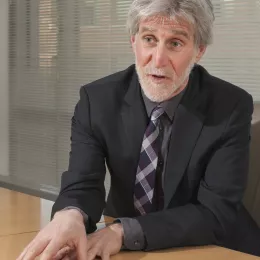
Peter Lurie, MD, MPH
President and Executive Director

Sarah Despres

Josh Rising, MD, MPH

Joshua M. Sharfstein, MD
The latest threats to vaccines
Off-label use of COVID-19 vaccines was once discouraged but has become common amid new guidelines
Vaccines
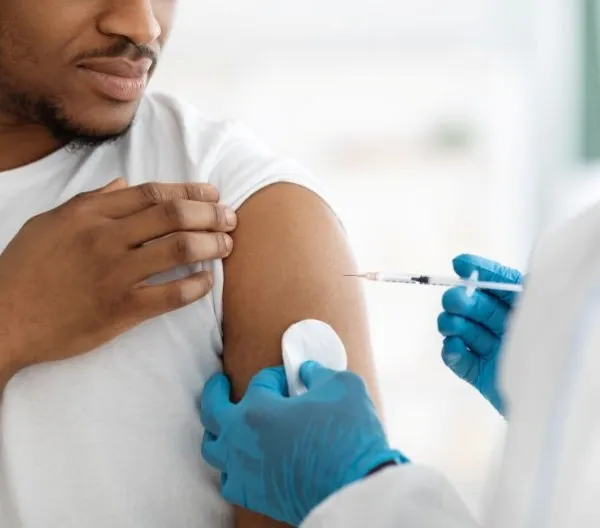
Inside the high-stakes battle over vaccine injury compensation, autism, and public trust
Vaccines

Do pediatricians recommend vaccines to make a profit? There’s not much money in it
Vaccines

CDC purge and Covid vaccine restrictions threaten public health
Government Accountability
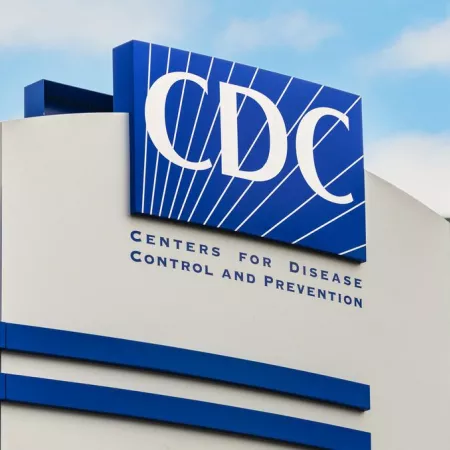
Pediatricians’ association recommends COVID-19 vaccines for toddlers and some older children, breaking with CDC guidance
Vaccines
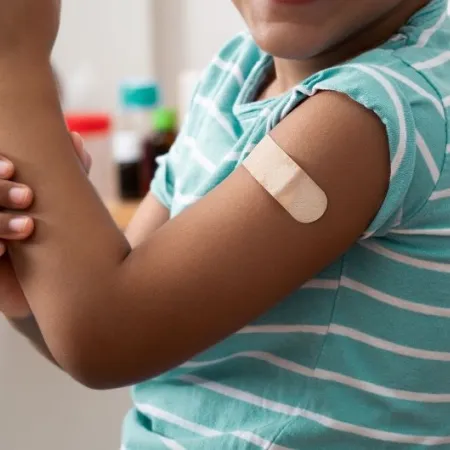
CSPI is your food & health watchdog
We envision thriving communities supported by equitable, sustainable, and science-based solutions advancing nutrition, food safety, and health.
As a nonprofit organization that takes no donations from industry or government, CSPI relies on the support of donors to continue our work in securing a safe, nutritious, and transparent food system. Every donation—no matter how small—helps CSPI continue improving food access, removing harmful additives, strengthening food safety, conducting and reviewing research, and reforming food labeling.
Please support CSPI today, and consider contributing monthly. Thank you.
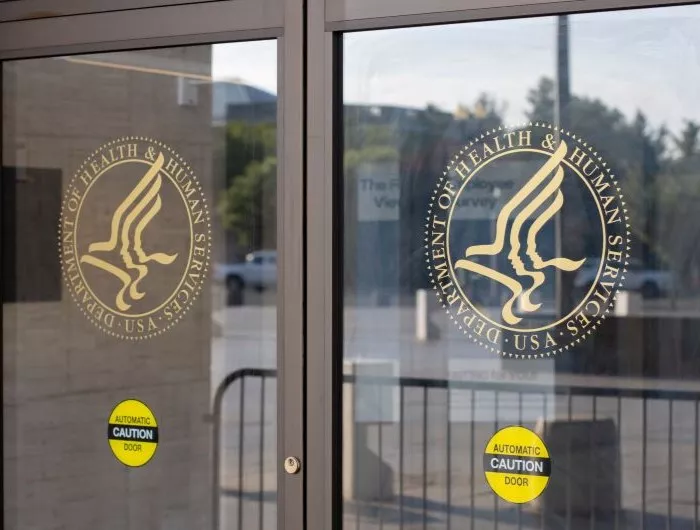
How CSPI is fighting threats to public health
Safe, nutritious food. Effective medicine. Empowered consumer choice. Honest and democratic government. These key building blocks of an American way of life can only be fully realized in a system that respects evidence, transparency, and accountability—a system where leaders believe in science and work for the public interest.

